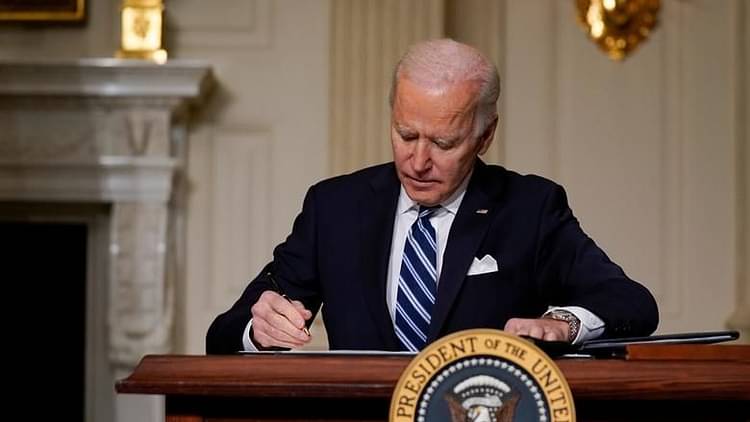The 600-plus word ‘Joint Statement of extended "Troika" on peaceful settlement in Afghanistan’ comprising representatives of Russia, China, the USA and Pakistan in Moscow may at the most have a tertiary effect on the global endeavour towards a sustainable peace through a negotiated political settlement. The Moscow deliberation "does not replace other ongoing talks in Doha", stated Jalina Porter, deputy State Department spokeswoman of the USA in Washington, the participation by US delegates in Moscow notwithstanding. She made it clear that the determining role of Afghan peace process rests with Doha talks.
The Moscow meet, the seventh (including two online sessions), was attended by representatives of the Government of the Islamic Republic of Afghanistan, Afghanistan’s High Council for National Reconciliation, prominent Afghan political figures and representatives of the Taliban movement, plus guests of honour representing Qatar and Turkey.
The statement comprised several agreed declarations. “We call on all parties to the conflict in Afghanistan to reduce the level of violence in the country and on the Taliban not to pursue a Spring offensive, so as to avoid further casualties and to create an environment conducive to reaching a negotiated political settlement,” it said. Participants reiterated that they ‘do not support the restoration of the Islamic Emirate’ and made a call to the Government of the Islamic Republic and the High Council for National Reconciliation of Afghanistan to ‘engage openly with their Taliban counterparts regarding a negotiated settlement’.
Both the Afghan government with President Ashraf Ghani at the helm and the High Council for National Reconciliation, headed by Abdullah Abdullah, welcomed ‘the strong joint statement on peace settlement in Afghanistan and their support for the acceleration of the peace talks’.
But the Taliban are back to their confrontationist stand. Mohammad Naim, spokesman for political office of the Taliban, stated bluntly at the conference that the Taliban ‘would not allow anyone to force upon us a political system. The future political system belongs to the people. The combat relationship between the Taliban and the Afghan government continues on daily basis’.
The Taliban recently claimed that they took control of Charkha district in Logar province, close to Kabul, although the Afghan government brushed aside the claim.
Washington is more concerned about when and how to achieve completion of the troops withdrawal process that began during the tenure of President Donald Trump whose representatives made a commitment to terminate the process by May 1. But President Joe Biden made it clear that the deadline would be unrealistic.
The Pentagon press secretary John Kirby told newspersons at a press briefing a fortnight back that “Everybody here is mindful of looming deadlines. And I cannot today sketch out for you what specific planning is going on when there hasn’t been a decision made yet about future force posture in Afghanistan”.
The NATO Secretary General Jens Stoltenberg assured on the eve of a two-day meeting of NATO foreign ministers ending today that NATO allies agree to stay on in Afghanistan to continue training and advising Afghan security forces, if Washington needs it, but said, "all options remain open."
As of now, some 2,500 U.S. troops remain deployed in the war-torn country.
The 19-year stretch of war in Afghanistan, America’s longest conflict, has already cost the U.S. taxpayers $193 billion. Even so, Americans display a significant degree of ambivalence on withdrawal of troops from Afghanistan. A survey, undertaken by the National Opinion Research Center in end-2020 among war veterans, reflects the indecisiveness. Forty per cent of those who served prior to 9/11 supported troop reductions while 32 per cent are opposed to it. Of those who served post-9/11 years, 54 per cent are for reductions, and 29 per cent are against.
The decision is a very difficult one, with downsides to both staying and leaving. American people are partly ambivalent, partly divided on the correct course of action. Veterans’ groups other than former members of US armed forces are also divided on the right policy decision.
The NORC survey states, “The American public is unsure about the next steps to take in Afghanistan, and for good reason: President Trump has made clear his determination to reduce America’s military footprint in Afghanistan, regardless of the consequences. The most recent version of Mr. Trump’s plan—a reduction to 2,500 troops by early January—may not satisfy those pushing for a complete withdrawal, but it will go further than most of Trump’s military advisers and the GOP leadership in Congress want to go. Only his most ardent supporters will be truly happy”.
Madiha Afzal, David M. Rubenstein Fellow in the Foreign Policy program at the Brookings Institution and Michael O’Hanlon, senior fellow and director of research at the Foreign Policy program of Brookings Institution in an opinion piece stated that complete withdrawal of US troops is fraught with high risks. The existing battlefield dynamics favours the Taliban, they said, adding that the absence of US and NATO troops, armed with sophisticated arms and accessories might lead to exacerbation — with terrible humanitarian consequences.
Some cities may fall to partial or complete Taliban control. Furthermore, the Taliban exacts leverage on those it considered collaborators with the Kabul regime, let alone powerful incentives for opponents to prevent its infiltration into other cities. “Most Pashtun (Afghanistan’s largest ethnic group) are not Taliban and do not support the Taliban. However, virtually all Taliban are Pashtun. Thus, if you are from a Tajik, Hazara or Uzbek ethnic group, the simplest way to protect yourself is to hunker down above the Hindu Kush Mountains in the nation’s north and push out all Pashtun. That is a recipe for ethnic cleansing, and massive human suffering throughout the country”, the Brooklyn academics put in realistically.
































